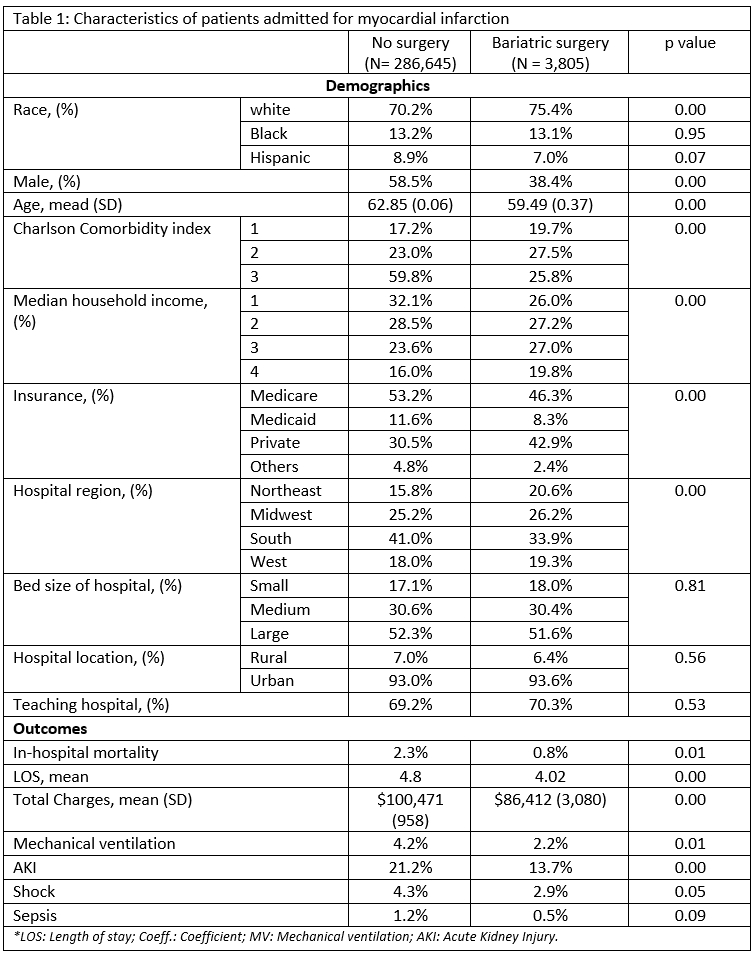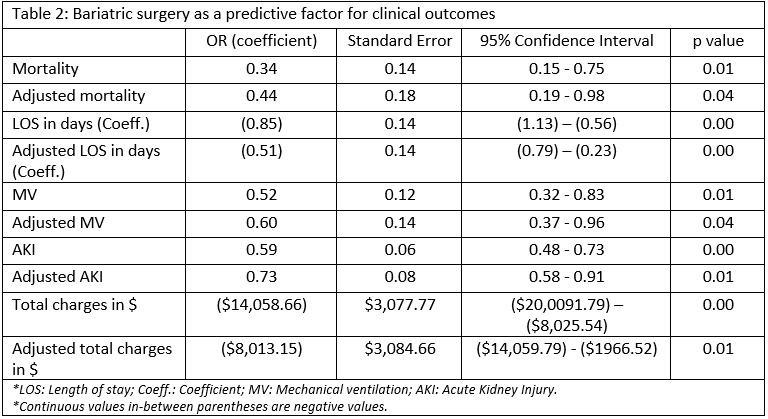BARIATRIC SURGERY DECREASES MORTALITY WHEN HOSPITALIZED WITH MYOCARDIAL INFARCTION
Yazan Abu Omar*1, Vibhu Chittajallu2, Miguel Salazar2, Roberto Simons-Linares1
1Cleveland Clinic, Cleveland, OH; 2UH Cleveland Medical Center, Cleveland, OH
Aim: We aim to investigate the inpatient mortality of patients with obesity hospitalized with myocardial infarction (MI) and compare patients with a history of bariatric surgery versus none.
Materials and Methods: We performed a case-control study with the 2016 and 2017 National Inpatient Sample (NIS) using ICD10-CM and PCS codes to identify patients with obesity hospitalized with MI and those with a history of bariatric surgery. Primary outcomes were differences in mortality rate and rates of inpatient outcomes and complications between patients with bariatric surgery and those without (controls). Secondary outcomes were organ failures: acute kidney injury (AKI) respiratory failure requiring mechanical ventilation, shock, sepsis, and length of stay (LOS). Multivariate regression models were constructed to adjust for confounders and hospital characteristics.
Results: a total of 290,450 (weighted) hospitalizations were included, 3,805 of which had a history of bariatric surgery. Inpatient mortality rates were lower in patients with history of bariatric surgery (0.8% vs 2.3%, P = 0.001). Furthermore, bariatric surgery was a protective factor with lower odds of inpatient mortality after MI (OR 0.34, 95% CI 0.15 – 0.76, P=0.01). Adjusted for multiple comorbidities and baseline characteristics between the two groups; bariatric surgery still has a protective effect (adjusted OR 0.44, 95% CI 0.19 – 0.98, P = 0.04). Also, bariatric surgery patients had lower rates of respiratory failure requiring mechanical ventilation (OR 0.52; p=0.01), AKI (OR 0.59, p<0.01), and shorter LOS (OR 0.51, p<0.01).
Conclusion: Patients with obesity who underwent bariatric surgery have better outcomes when hospitalized with myocardial infarction as shown in our study by lower inpatient mortality and lower rates of multi-organ failure. Bariatric Surgery improves outcomes of MI and should be considered life-saving for patients with obesity who have a risk for cardiovascular disease.

Back to 2022 Abstracts
